In AfroGrow, 25 dedicated partners, including universities, research institutes, NGOs, and international organisations from across Africa and Europe, are united under a shared goal: transforming agroforestry into a tool for sustainable development. Through six Living Labs, inclusive innovation, and evidence-based approaches, the consortium bridges science, community, policy, education, and resilience.
ERATOSTHENES Centre of Excellence (ECoE), based in Cyprus, leads AfroGrow as the Project Coordinator. With roots in the Cyprus University of Technology and a foundation in the H2020 ‘EXCELSIOR’ project, ECoE is a hub of digital innovation in Earth Observation and geospatial intelligence. The Centre brings advanced remote sensing, big data analytics, and project management expertise to AfroGrow. It develops the AfroGrow Platform and the Climate-Smart Agroforestry Planner, two essential digital tools supporting evidence-based decisions. ECoE also plays a central role in shaping the project’s Living Labs, ensuring that research is inclusive, data-driven, and tailored to local needs across Africa.
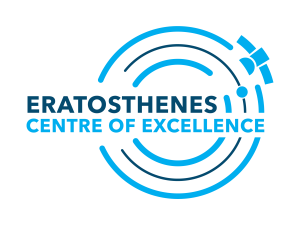
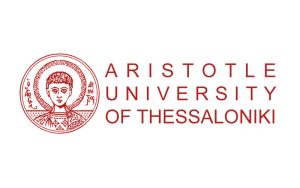
The Laboratory of Forest Management and Remote Sensing at Aristotle University of Thessaloniki (AUTH) brings deep expertise in environmental monitoring and Earth Observation to AfroGrow. With a longstanding focus on forest management, biodiversity, desertification, and climate stressors, the team develops advanced geospatial tools to assess habitat suitability and agroforestry impacts on microclimate regulation. AUTH’s tools integrate satellite data and on-the-ground observations, enabling near-real-time environmental assessments across Africa’s Living Labs. Through its scientific leadership, AUTH contributes to understanding how agroforestry systems respond to and mitigate climate pressures—informing evidence-based decisions for sustainable land use and ecosystem resilience.
Czech University of Life Sciences Prague (CZU) brings its strong track record in sustainability and international development to AfroGrow. With contributions from three of its faculties—FTZ, FAPPZ, and FŽP, CZU leads the project’s impact assessment and supports the design and coordination of activities across all six Living Labs. The university develops a harmonised data collection framework and helps deliver training, demonstrations, and workshops. With deep expertise in agroforestry, food security, traceability, and ethnopharmacology, CZU plays a vital role in ensuring AfroGrow’s outcomes are inclusive, locally grounded, and capable of informing long-term policy for sustainable land use in Africa.
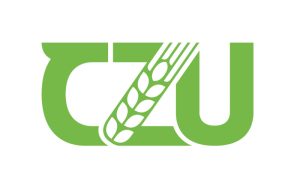
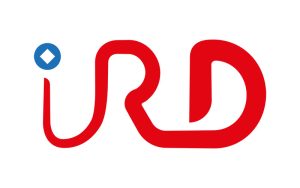
With nearly 80 years of experience, the French National Research Institute for Sustainable Development (IRD) is a key player in advancing global sustainability through equitable scientific partnerships across the Global South. In AfroGrow, IRD applies its deep expertise in agroecology and biodiversity, particularly through its ongoing work in Kenya with ICIPE on maize pests, pollinators, and natural enemies. The team contributes to the development of regional suitability maps and biodiversity databases for crops and breeds. These efforts support the design of ecologically balanced agroforestry systems that enhance food security, biodiversity conservation, and climate resilience in targeted regions.
The Swedish University of Agricultural Sciences (SLU) is a globally recognised institution known for its cutting-edge research and commitment to sustainable development. Focusing on the interactions between humans, animals, and ecosystems, SLU advances responsible natural resource management to promote environmental and societal wellbeing. Within AfroGrow, SLU leads the assessment of agroforestry’s impact on water dynamics and ecosystem health across diverse landscapes. By studying how trees regulate microclimates and support resilient ecosystems, SLU helps shape sustainable agroforestry practices. The university also contributes to developing species databases that guide the selection of plants and trees tailored to local environments.
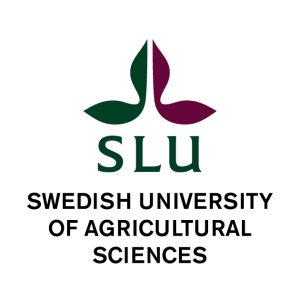
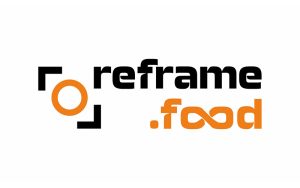
reframe.food (RFF) stands for a renewed purpose and vision for the agrifood sector. Its mission is to shape the future of food by empowering existing and potential partners through dedication to impact maximisation and meticulous attention to detail. reframe.food envisions a fair food system that ensures sustainability from farm to fork. As leader of AfroGrow’s communication and exploitation efforts, RFF drives the project’s visibility and long-term impact. It coordinates targeted outreach, synergies, and stakeholder engagement to ensure that results reach key audiences across Africa and Europe. Leveraging its expertise as an accelerator in the agrifood and carbon farming sectors, the organisation develops a business framework to demonstrate the economic potential of carbon farming in agroforestry systems. It also designs a robust intellectual property strategy to support AfroGrow’s sustainability beyond the project’s lifetime.
Founded in 2012, White Research SRL (WHITE) is a Brussels-based research and consultancy company with a satellite office in Thessaloniki. Specialising in social science research, consumer behaviour, market analysis, and EU policy, WHITE serves public and private sectors, academia, and civil society. Having contributed to over 30 EU-funded projects, WHITE excels in proposal writing, research design, and stakeholder engagement. In AfroGrow, WHITE leads the strategic design of the multi-actor approach, develops a gender-responsive plan for Living Lab activities, and supports regional Multi-Actor Platforms. Through co-creation and awareness-raising actions, WHITE engages local communities to promote inclusive agroforestry practices and ensure the project’s sustainable impact.
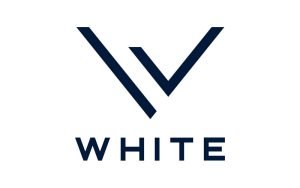
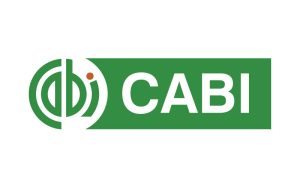
Centre for Agriculture and Biosciences International Archives (CABI) is an international, intergovernmental, not-for-profit organisation that improves lives worldwide by applying scientific expertise and providing access to knowledge in agriculture and the environment. Through its work in tackling crop pests and diseases, promoting sustainable farming, strengthening food security, and building climate resilience, CABI helps farmers grow more and lose less. As part of AfroGrow, the organisation contributes its extensive expertise in training and digital learning, supporting the development of the project’s open-access e-learning platform for agroforestry management across Africa.
The Heidelberg Planetary Health Hub (Universitätsklinikum Heidelberg – UKHD) is a dynamic research community focused on the intersections of climate change, environmental degradation, and human health. Rooted in the belief that healthy ecosystems are essential for human well-being, UKHD pioneers interdisciplinary research to understand the links between planetary and public health. In AfroGrow, the Hub applies cutting-edge data science, such as modelling, machine learning, and geo-informatics, to explore how agroforestry affects nutrition, labour capacity, and disease risk. This work supports evidence-based, inclusive land management practices that strengthen resilience across African regions. By connecting agroforestry and health outcomes, UKHD helps shape solutions for a more sustainable and healthy future.
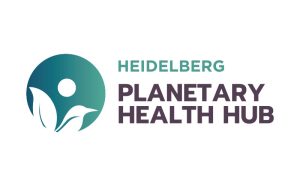
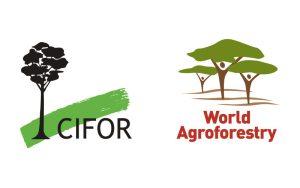
The Center for International Forestry Research and World Agroforestry (CIFOR-ICRAF) is a non-profit science organisation tackling global challenges like biodiversity loss, food insecurity, and climate change through research on trees, forests, and agroforestry. A CGIAR member, CIFOR-ICRAF brings decades of experience in ecosystem restoration, policy engagement, and community-driven innovation. In AfroGrow, it co-leads coordination in Africa, develops a soil spectral library using vis-NIR and MIR spectroscopy, and maps the agroforestry sector across selected regions. It also supports the AfroGrow App and leads the Pan-African Agroforestry Hub, promoting collaboration, knowledge sharing, and sustainable land use across the continent.
Headquartered in Nairobi since 1970, the International Centre of Insect Physiology and Ecology (ICIPE) advances entomological science to reduce poverty, improve food security, and protect health in the tropics. It promotes sustainable strategies for managing arthropods—both harmful and beneficial—through innovative research and capacity building. In AfroGrow, ICIPE applies eDNA metabarcoding to assess insect biodiversity in agroforestry systems, focusing on pests and pollinators. These insights feed ecological models that inform pest management, enhance conservation, and support resilient, biodiversity-friendly farming across Africa.
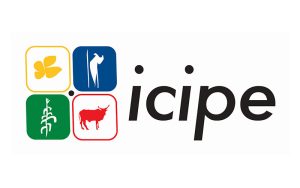
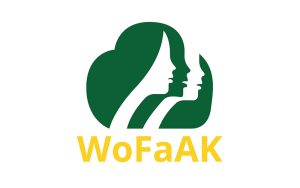
The Women Farmers Association of Kenya (WoFaAK) is a national umbrella organisation representing women farmers across Kenya. With a mission to enhance food security and incomes through capacity building, mentorship, and entrepreneurship, WoFaAK brings deep expertise in gender equality and social inclusion to AfroGrow. The organisation provides essential insights into the lived experiences of women in agriculture and helps tackle structural inequalities across Africa. In AfroGrow, WoFaAK supports the co-design of inclusive Living Labs, contributes to outreach and knowledge-sharing events, and ensures that the voices of women, youth, and people with disabilities are integrated into agroforestry practices and policies.
Hawassa University (HWU) is one of Ethiopia’s ten designated research universities, dedicated to social and economic development through education, innovation, and applied research. Through its Wondo Genet College of Forestry and Natural Resources, a national center of excellence, HWU brings strong expertise in forestry, agroforestry, and natural resource management. In AfroGrow, the university leads coordination of Living Lab activities across partner countries and supports the creation of harmonised data collection frameworks. HWU plays a central role in shaping on-the-ground research and contributes to project components that rely on robust, field-based data.
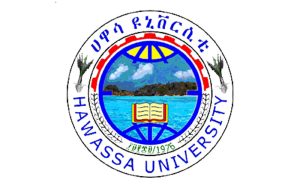
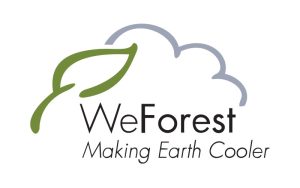
WeForest is a non-profit organisation dedicated to restoring and conserving forests at the landscape level to benefit people, nature, and climate. With over 100 million trees grown, 86,000 families supported, and more than 70,000 hectares restored or conserved, WeForest brings extensive experience in ecosystem restoration. In AfroGrow, it leads on digital traceability frameworks to ensure transparent agroforestry practices, with a focus on Ethiopia. WeForest also contributes to biodiversity and impact assessments, supports awareness-raising and community engagement, and helps amplify communication and outreach efforts. By linking restoration with local impact, WeForest contributes to AfroGrow’s sustainability and long-term legacy.
Golden Valley Agricultural Research Trust (GART) is a public-private research institution established in 1998 under Zambian law. It envisions becoming a centre of excellence in climate-smart agriculture, advancing farmer-focused and commercially oriented research to support sustainable agricultural development. In AfroGrow, GART contributes to socio-economic assessments of agroforestry systems, examining the role of animal health and medicinal crops in enhancing food security. It supports the development of traceability frameworks to strengthen transparency and assess the scalability of agroforestry for climate neutrality. GART also plays a key role in dissemination, outreach, and capacity building, translating research into tangible benefits for farmers and communities.
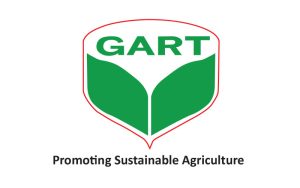
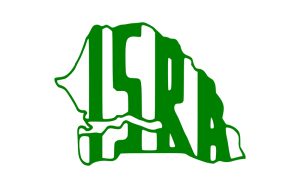
The Senegalese Institute of Agricultural Research (ISRA) is a key national research body working across Senegal’s eco-zones in crops, livestock, forestry, fisheries, and socio-economics. Since 1974, it has supported science-based development through applied research, policy engagement, and capacity building. In AfroGrow, ISRA leads the creation of regional databases on plant species and animal breeds, linking traditional knowledge with market needs. It also maps agroforestry education in Africa, identifies resilient livestock, and assesses how agroforestry improves local well-being, helping shape more inclusive, sustainable landscapes across the continent.
With over 37 years of experience in agricultural research and development across West and Central Africa, West and Central African Council for Agricultural Research and Development (CORAF) plays a key role in AfroGrow by bringing valuable regional expertise in agroforestry, climate adaptation, and food systems. Its contributions include aligning data from our Living Labs with African and European policy frameworks, co-developing suitability assessment maps, and supporting stakeholder engagement. By bridging science, innovation, and policy, CORAF helps promote inclusive, sustainable agroforestry practices, strengthening AfroGrow’s impact at both national and continental levels.
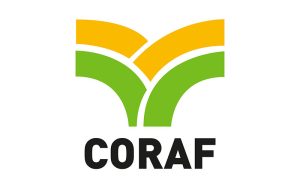
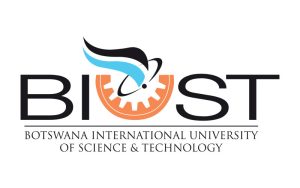
The Botswana International University of Science and Technology (BIUST) is the country’s only institution dedicated exclusively to Science, Technology, Engineering, and Mathematics. As a research-intensive university, BIUST plays a key role in supporting Botswana’s transition to a knowledge-based economy through advanced scientific training and innovation. Within the AfroGrow project, BIUST brings critical expertise in assessing how different agroforestry approaches perform under real environmental conditions. The university contributes to evaluating the effects of agroforestry on soil health, biodiversity, pests, water availability, and climate regulation. These insights help ensure that agroforestry practices promoted through AfroGrow are both sustainable and scientifically sound. By connecting research with application, BIUST supports AfroGrow’s broader goal of fostering resilient agroforestry systems across Africa.
At the intersection of conservation and community, Elephants for Africa (EfA) brings a unique perspective to the AfroGrow project. Based in Botswana, EfA specialises in the ecological and social needs of male African savanna elephants, working to mitigate human-wildlife conflict and support harmonious coexistence. With a strong presence in communities bordering protected areas, EfA provides conservation education and contributes critical knowledge on how agroforestry systems interact with wildlife and rural livelihoods. Within AfroGrow, EfA plays a key role in assessing how animal integration in farming can support both ecological resilience and socio-economic well-being. Their contribution helps shape agroforestry practices that are not only sustainable but inclusive—supporting both people and biodiversity across Africa.
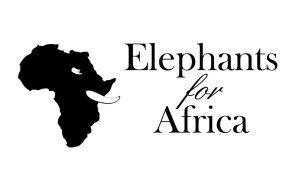
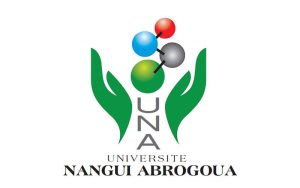
Located in Côte d’Ivoire, Université Nangui Abrogoua (UNA) is a public higher education and research institution with strong expertise in STEM, environmental sciences, biotechnology, and renewable energy. Within AfroGrow, UNA contributes to monitoring how long-established agroforestry systems impact biodiversity (both above and below ground), soil health, carbon stocks, and cocoa productivity. UNA also works directly with farmers to promote agroecological transition and gender-responsive practices that add value to restoration efforts. Through the involvement of MSc and PhD students, the university helps build scientific capacity while supporting advocacy and awareness for scaling sustainable cocoa agroforestry across the region.
Launched at COP15 in 2022, Abidjan Legacy Program (ALP) is Côte d’Ivoire’s flagship initiative to combat land degradation, restore forest ecosystems, and improve livelihoods. As a national priority, endorsed by the Head of State, it addresses urgent challenges like deforestation and soil depletion, while unlocking new opportunities for youth and women through green jobs and sustainable agriculture. In AfroGrow, ALP brings a powerful national framework for scaling up agroforestry. Its contributions include strengthening policy environments, mobilising finance, and supporting innovation through inclusive partnerships. By focusing on ecosystem restoration and resilient value chains, ALP plays a central role in amplifying the project’s long-term impact on food security, climate adaptation, and social equity across Africa.
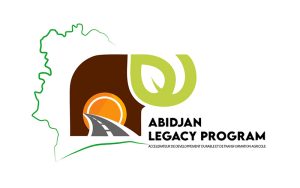
Associated Partners
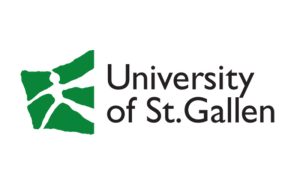
The University of St. Gallen (HSG), one of Europe’s leading business schools, contributes to AfroGrow as an associated partner through its School of Humanities and Social Sciences (SHSS). Bringing expertise in stakeholder engagement, social impact, and equity, HSG strengthens the project’s interdisciplinary dimension. Its involvement focuses on evaluating inequalities in agroforestry decision-making, supporting post-project sustainability planning, and co-developing tools such as the AfroGrow app. HSG also engages in training, socio-economic assessments, and outreach activities that help integrate social sciences into the agroecological transition.
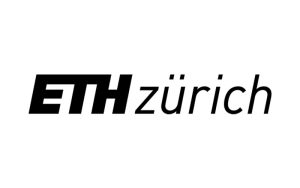
Through its Soil Resources group, the Federal Institute of Technology Zurich (Eidgenössische Technische Hochschule Zürich – ETHZ) brings world-class expertise in biogeochemistry and environmental monitoring to AfroGrow. Working across Arctic, Tropics, and Alpine regions, the team investigates how agroforestry influences soil health, carbon storage, biodiversity, and water retention, across the project’s Living Labs. Using advanced sampling techniques like the Land Degradation Surveillance Framework (LDSF), they monitor changes across seasons and landscapes—linking below-ground dynamics to agroforestry practices. Their work strengthens the project’s ability to assess long-term environmental benefits and supports evidence-based strategies for climate resilience and sustainable land use in Africa.
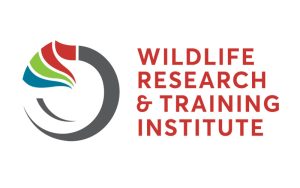
Headquartered in Naivasha, Kenya, the Wildlife Research and Training Institute (WRTI) operates field centres and sub-centres across key wildlife conservation areas, each addressing specific agro-climatic research themes. WRTI joins AfroGrow as an associated partner and brings its ecological expertise to the project through collaboration with IRD and ICIPE. The institute contributes to the development of community-and market-based databases of suitable plant and animal species, ensuring relevance to local livelihoods and ecosystems. It also supports the creation of regional suitability assessment maps, which guide optimal species selection for agroforestry systems across diverse African landscapes.
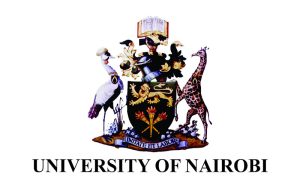
University of Nairobi (UoN) brings decades of academic excellence and research leadership to AfroGrow. As Kenya’s oldest and most prestigious university, UoN contributes its expertise in agricultural sciences and research to support the development of context-specific agroforestry systems in Kenya and beyond. As an associated partner in the Kenya Living Lab, it provides critical insights for field-level data collection, local agroecological analysis, and capacity-building. Working alongside research partners, the university helps co-design agroforestry interventions that are locally grounded and inclusive, strengthening the knowledge base for sustainable land use and rural development.
AfroGrow thrives because its partners cover the full spectrum, from soil biogeochemistry and tree science to gender inclusion, wildlife ecology, education, and digital capacity building. Together, they co-create resilient landscapes, inclusive value chains, and policy-aligned agroforestry solutions that scale across Africa.
Want to dive deeper? Visit our Partners page to explore individual profiles, read about their roles, and connect to insights from the Living Labs driving change on the ground.
Disclaimer
Funded by the European Union. Views and opinions expressed are however those of the author(s) only and do not necessarily reflect those of the European Union or Research Executive Agency. Neither the European Union nor the granting authority can be held responsible for them.




